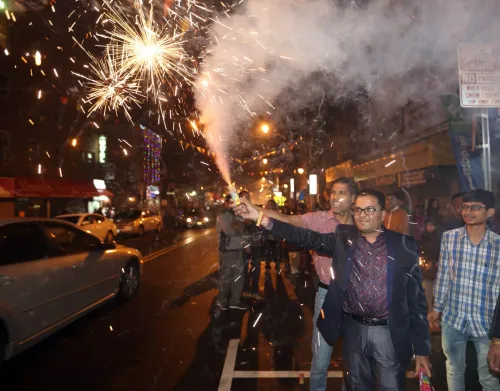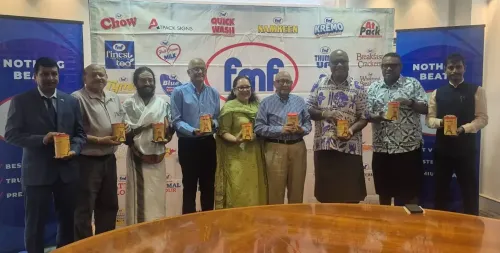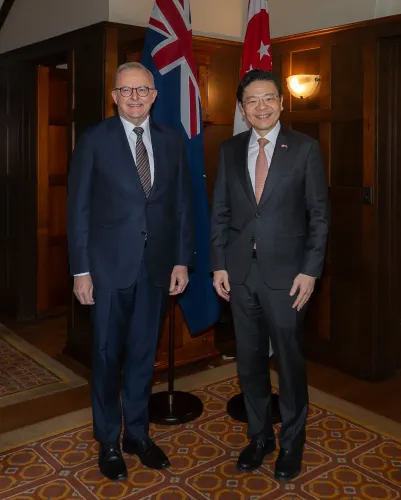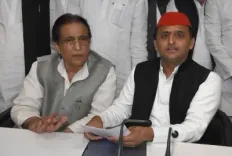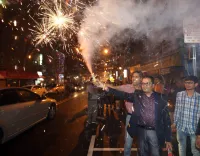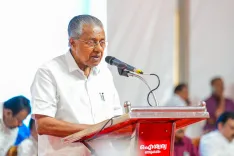Why Did the US Congratulate Pakistan on Independence Day?
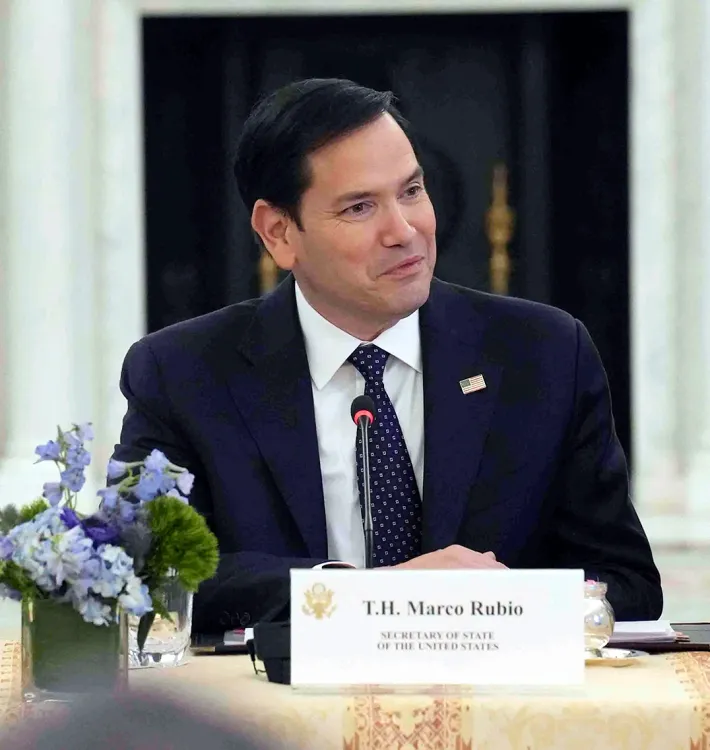
Synopsis
Key Takeaways
- US Secretary of State Marco Rubio congratulated Pakistan on its Independence Day.
- Emphasis on counterterrorism and trade in diplomatic relations.
- The Pahalgam attack drew international condemnation.
- Potential cooperation in critical minerals and hydrocarbons.
- Baloch leaders express concerns over marginalization.
Washington, Aug 14 (NationPress) Several months following the tragic incident where Pakistan-backed terrorists claimed the lives of 26 tourists in Pahalgam, Jammu and Kashmir, US Secretary of State Marco Rubio on Thursday conveyed warm wishes to Islamabad on its Independence Day (August 14). He emphasized that Washington highly values Pakistan's efforts in counterterrorism and trade.
The heinous Pahalgam attack drew widespread condemnation globally, and during his visit to the US in May, the Pakistani Army Chief faced protests. Nevertheless, with trade interests rising after Islamabad's offer of Balochistan to Washington, the Trump administration has extended a welcoming gesture towards General Field Marshal Asim Munir.
On the occasion of Pakistan's Independence Day, Rubio stated: "On behalf of the United States, I extend our warm congratulations to the people of Pakistan as they mark their Independence Day on August 14. The United States deeply appreciates Pakistan's engagement on counterterrorism and trade," he mentioned in an official statement.
These remarks coincided with the aftermath of the April 22 attack, where Pakistani terrorists killed 26 tourists in Pahalgam, an act that received strong international condemnation. The US also condemned the attack, subsequently designating The Resistance Front (TRF) as a terrorist organization.
Rubio expressed hope for enhanced collaboration in critical minerals and hydrocarbons, aspiring for "a bright future for both Americans and Pakistanis".
"We are eager to explore new avenues of economic cooperation, including critical minerals and hydrocarbons, and establish dynamic business partnerships that will foster a prosperous future for both Americans and Pakistanis," the statement read.
Rubio's remarks signify what analysts perceive as an improvement in US-Pakistan relations under President Donald Trump, despite the controversies surrounding Field Marshal Asim Munir's recent visits to the US.
Munir's trip aimed at enhancing military and strategic ties faced significant protests from the Pakistani diaspora and supporters of former Prime Minister Imran Khan's Pakistan Tehreek-e-Insaf (PTI) party.
Footage from the demonstrations, which included a protester repeatedly calling Munir "Geedad" (jackal), went viral, and analysts deemed the incident a public embarrassment for Pakistan's military establishment.
Reports suggest that President Trump's intention to access Pakistan's oil and mineral reserves is part of a larger strategy to counter China's dominance in the global rare earth market, which is essential for advanced military technologies, including drone systems.
The US perceives access to these resources as crucial for diversifying supply chains and minimizing reliance on Beijing.
However, the proposed US-Pakistan collaboration in minerals faces strong opposition from Baloch leaders. Mir Yar Baloch, a prominent activist, cautioned that such agreements would empower Pakistan's military and intelligence apparatus while further marginalizing the people of Balochistan.
Describing Balochistan as "an ancient sovereign nation under illegal occupation", he emphasized the region's rich reserves of rare earth minerals, oil, gas, and its strategic ports and airbases, lamenting the oppression faced by its people under regimes hostile to secular and peaceful traditions.
Tara Chand, President of the Baloch American Congress, criticized Munir, labeling him a "fake Field Marshal" and an "enemy of humanity". He called for the removal of Pakistan's nuclear weapons, warning that the "religiously motivated" leadership could act on destructive ambitions threatening global security.

